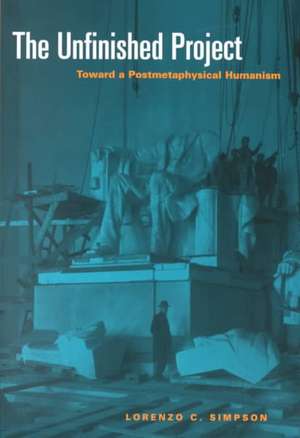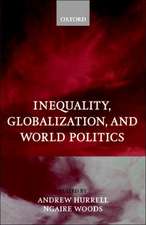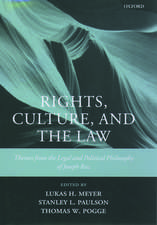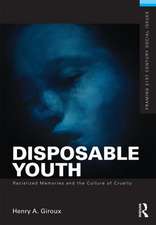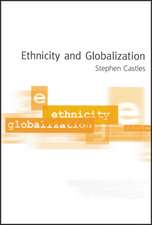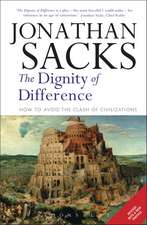The Unfinished Project: Toward a Postmetaphysical Humanism
Autor Lorenzo C. Simpsonen Limba Engleză Paperback – 9 aug 2001
| Toate formatele și edițiile | Preț | Express |
|---|---|---|
| Paperback (1) | 365.79 lei 6-8 săpt. | |
| Taylor & Francis – 9 aug 2001 | 365.79 lei 6-8 săpt. | |
| Hardback (1) | 1108.37 lei 6-8 săpt. | |
| Taylor & Francis – 15 aug 2001 | 1108.37 lei 6-8 săpt. |
Preț: 365.79 lei
Nou
Puncte Express: 549
Preț estimativ în valută:
69.99€ • 73.26$ • 58.26£
69.99€ • 73.26$ • 58.26£
Carte tipărită la comandă
Livrare economică 31 martie-14 aprilie
Preluare comenzi: 021 569.72.76
Specificații
ISBN-13: 9780415916387
ISBN-10: 0415916380
Pagini: 192
Dimensiuni: 152 x 229 x 14 mm
Greutate: 0.36 kg
Ediția:1
Editura: Taylor & Francis
Colecția Routledge
Locul publicării:Oxford, United Kingdom
ISBN-10: 0415916380
Pagini: 192
Dimensiuni: 152 x 229 x 14 mm
Greutate: 0.36 kg
Ediția:1
Editura: Taylor & Francis
Colecția Routledge
Locul publicării:Oxford, United Kingdom
Notă biografică
Lorenzo C. Simpson is Professor of Philosophy at the State University of New York at Stony Brook. His most recent book is Technology, Time, and the Conversations of Modernity (Routledge, 1995).
Recenzii
"Simpson offers a sensitive and powerful argument for a conception of humanism defensible in the 21st century." -- William Outhwaite, author of Habermas: A Critical Introduction
"Simpson's defense of humanism as a 'situated cosmopolitanism' displays tremendous range. Few philosophers have mastered the nuances of music theory, cultural criticism, postmodernism, hermeneutics, and critical theory to the same degree; and those who have seldom write with such clarity." -- David Ingram, Loyola University of Chicago
"Responding to the philosophical situation of our time in which the voices of postmodernism, declaring the death of humanism and the bankruptcy of reason, wage war against the Enlightenment concepts of a common humanity and a rational social order, Lorenzo Simpson deftly splits the difference as he wends his way towards a new perspective on rationality and a viable humanism for the new millennium. This skillfully crafted volume should become required reading for all those who have worries about the future of philosophy." -- Calvin O. Schrag, Purdue University
"A thoughtful essay by a philosopher who has learned much from Habermas, but also has a good ear for jazz. That ear serves him well as he charts his course towards a postmetaphysical, multicultural humanism, between the Scylla of Eurocentric arrogance and the Charybdis of postmodern condescension." -- Karsten Harries, Yale University
"If there is a philosopher who manages to be both vigorous and gentle, both circumspect and courageous, it is Lorenzo Simpson, and in this book he leaves us with an appropriately encouraging conviction--we all can learn to live together honestly and with mutual understanding." -- Albert Borgmann, University of Montana and author of Holding On to Reality: The Nature of Information at the Turn of the Millennium.
"This brilliant new work critically addresses and comparatively evaluates the implications of modernism and postmodernism on multiculturalism. Neither emerge unscathed, but Simpson takes the positive contributions of each to develop a post-metaphysical humanism, one that acknowledges that individuals can never wholly transcend their culture and history--their identity, in other words--but that also rejects the permanence of absolute difference or incomprehension across cultural divides. Humanity, Simpson, urges, will be forged rather than found, and as such, is the unfinished project yet to be accomplished." -- Linda Martín Alcoff, Syracuse University
"Simpson's defense of humanism as a 'situated cosmopolitanism' displays tremendous range. Few philosophers have mastered the nuances of music theory, cultural criticism, postmodernism, hermeneutics, and critical theory to the same degree; and those who have seldom write with such clarity." -- David Ingram, Loyola University of Chicago
"Responding to the philosophical situation of our time in which the voices of postmodernism, declaring the death of humanism and the bankruptcy of reason, wage war against the Enlightenment concepts of a common humanity and a rational social order, Lorenzo Simpson deftly splits the difference as he wends his way towards a new perspective on rationality and a viable humanism for the new millennium. This skillfully crafted volume should become required reading for all those who have worries about the future of philosophy." -- Calvin O. Schrag, Purdue University
"A thoughtful essay by a philosopher who has learned much from Habermas, but also has a good ear for jazz. That ear serves him well as he charts his course towards a postmetaphysical, multicultural humanism, between the Scylla of Eurocentric arrogance and the Charybdis of postmodern condescension." -- Karsten Harries, Yale University
"If there is a philosopher who manages to be both vigorous and gentle, both circumspect and courageous, it is Lorenzo Simpson, and in this book he leaves us with an appropriately encouraging conviction--we all can learn to live together honestly and with mutual understanding." -- Albert Borgmann, University of Montana and author of Holding On to Reality: The Nature of Information at the Turn of the Millennium.
"This brilliant new work critically addresses and comparatively evaluates the implications of modernism and postmodernism on multiculturalism. Neither emerge unscathed, but Simpson takes the positive contributions of each to develop a post-metaphysical humanism, one that acknowledges that individuals can never wholly transcend their culture and history--their identity, in other words--but that also rejects the permanence of absolute difference or incomprehension across cultural divides. Humanity, Simpson, urges, will be forged rather than found, and as such, is the unfinished project yet to be accomplished." -- Linda Martín Alcoff, Syracuse University
Cuprins
Preface; Acknowledgments; Introduction: Humanism, Postmodernism , and Irony; I. Historical Considerations; 1. On Arnold and Herder: The Idea of Culture and the Idea of Difference 2. Musical Interlude: Adorno on Jazz, Or How Not to Fuse Horizons; II. The Unfinished Project; 3. Critical Theory and the Politics of Recognition; 4. Situated Cosmopolitanism; 5. Postmodern Rejoinders; Epilogue: Towards a Humanistic Multiculturalism; Notes; Bibliography; Index
